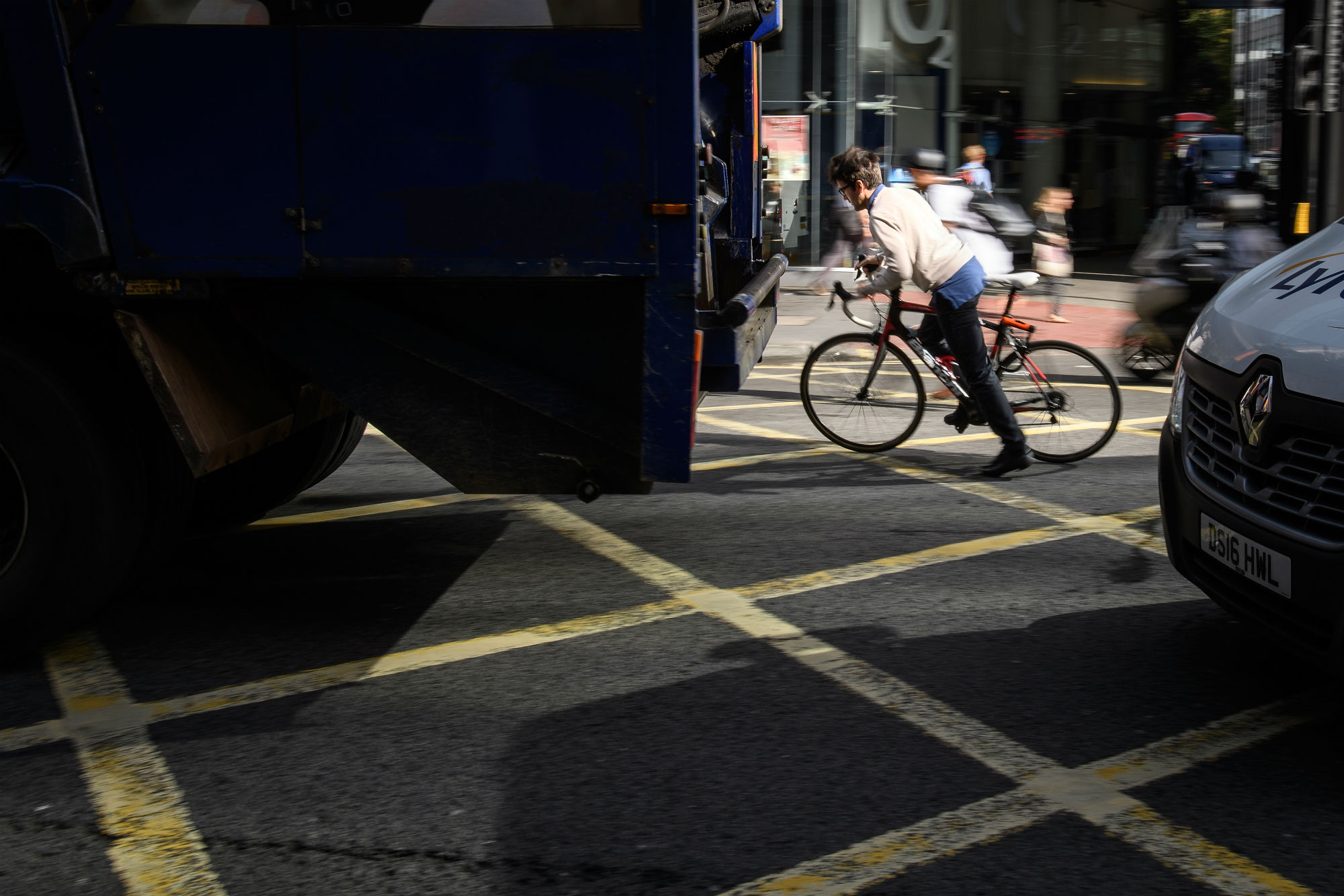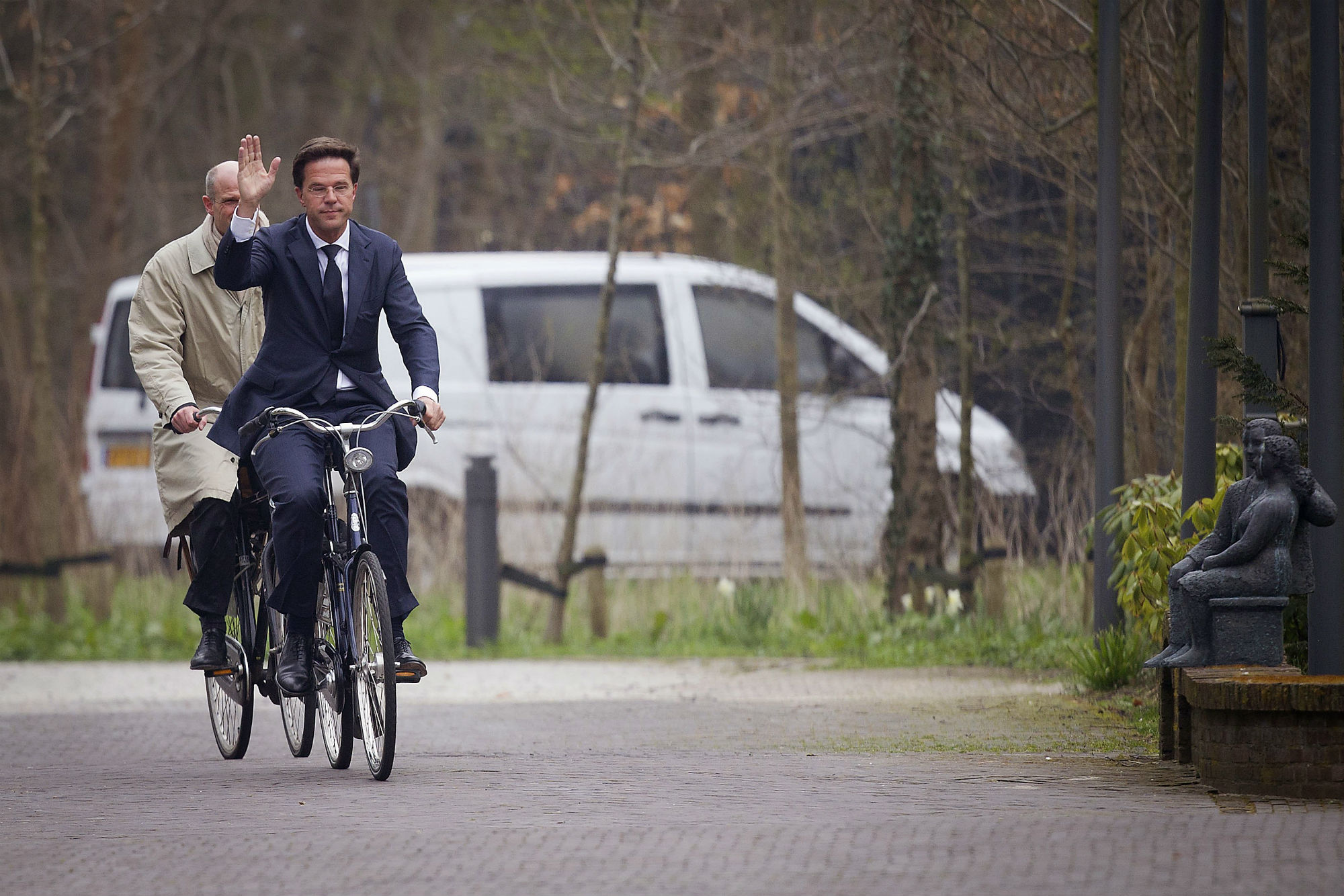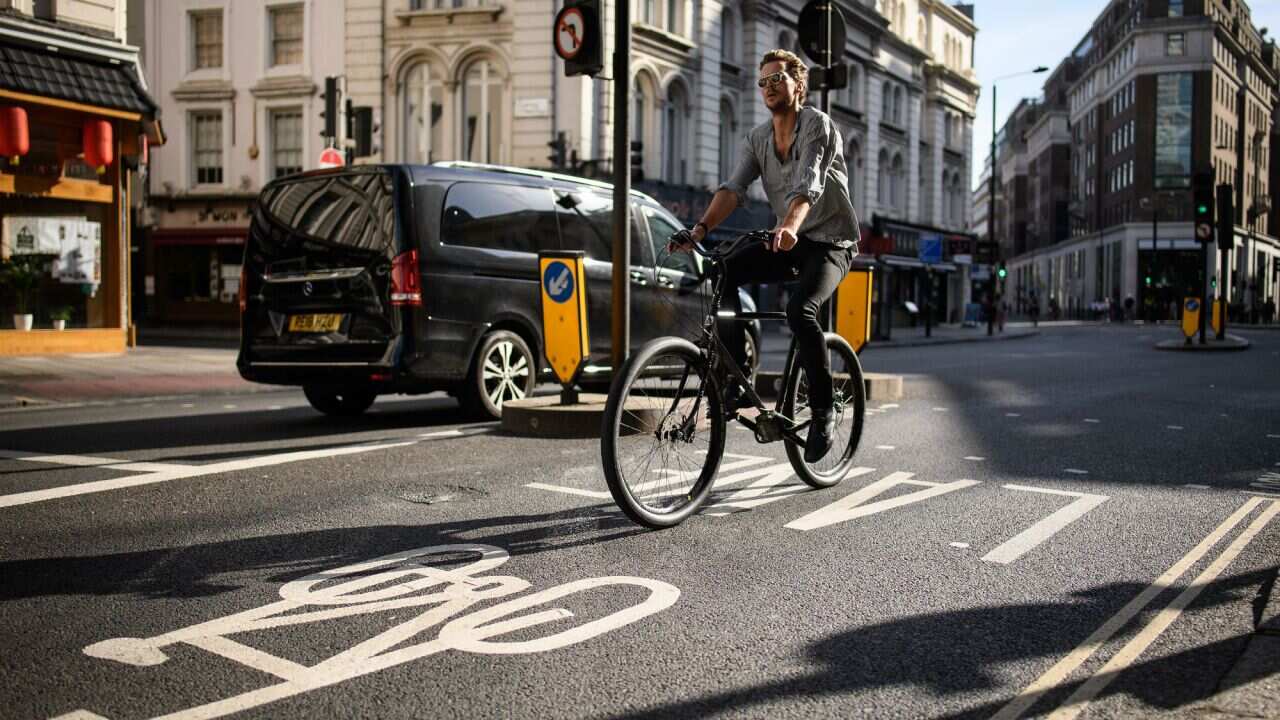"I've never ridden a bike in London, apart from in a race," said the 2018 Tour de France champion.
"I've watched from a taxi and it does seem a bit crazy. I would certainly make helmets compulsory."
From accidental hero to social media pariah in three short sentences.
"Safety in infrastructure, safety in slowing cars, and safety in numbers are all far more important than safety in body armour."
If you're one of the 2.23 billion with a Facebook account (congrats if you're not), go to any news story where "Helmets should be compulsory for cyclists, says Geraint Thomas" is the headline or something similar and, if you dare, check out how some sections of the cycling fraternity have responded.
You might've got a more lenient response if the headline instead was "Tour de France champ charged with terrorism plot, working for Al-Qaeda".
Certainly, there has been no definitive evidence to show mandatory helmet use when cycling to work increases safety or reduces risk of an accident. It's not something you'd go out of your way to try and do, but falling on your noggin at low speeds is actually quite difficult.
That only two countries - Australia and New Zealand - have adopted such laws speaks for itself. Are we Antipodeans the only ones who value our lives when out cycling?
Of course not.
There's been plenty of arguments to suggest the simple act of having to put on a lid means you're about to partake in a quasi-dangerous activity, increasing one's anxiety on the perils of the road. While I'm not defending Thomas, I am defending his right to free speech. Besides, it's not like he makes or changes the law regarding helmet use in the United Kingdom. And if you read this recent , a Canadian couple who authored , it might give oneself a better idea where the Welshman was coming from when he made those comments that have proved so divisive.
While I'm not defending Thomas, I am defending his right to free speech. Besides, it's not like he makes or changes the law regarding helmet use in the United Kingdom. And if you read this recent , a Canadian couple who authored , it might give oneself a better idea where the Welshman was coming from when he made those comments that have proved so divisive.

Little separates cyclist from car or truck in many streets in central London. Source: Getty Images
Acknowledging each of the five cities in the Netherlands they visited was different in terms of how they laid their cycling blueprint, it was the similarities that have bound this commuter cyclist's (or what they call 'fietser') utopia together.
The Dutch design manual says that in areas where cars travel faster than 30km/h, there must be full separation of cars and cyclists. All cycling paths are clearly marked in an inch-thick maroon hue, and importantly, are carried through intersections that, more often than not, have protective bollards on corners. "The cars know that they are to look out for bikes. They are treated almost as guests in the city," Chris Bruntlett says.
Furthermore, adds Melissa Bruntlett, "The concept of cycling starts getting introduced to a lot of kids in preschool. But the biggest education — while it's not mandatory throughout the country, it's done by most schools — is students around grade four or five, in the 10 and 11 age range, start taking cycling skills courses." A practical exam by cycling advocacy group the Fietserbond sees hundreds of students go out and ride their school route before being issued a certificate of competency.
At any train station, bike parking is provided - Utrecht, the fourth-largest city in the country, will soon have a facility to accommodate 12,500 bike spaces, the largest in the world. And in OV-fiets, a relatively new phenomenon, should one need a ride to get to your final destination after disembarking, you can use the same chip card used to take the train to hire a bike. It's currently available in 300 locations across the Netherlands, creating a seamless, car-free travel experience.
Now here's the thing on helmets, or rather their absence. Says Chris Bruntlett: "The Dutch show that (for them), safety in infrastructure, safety in slowing cars, and safety in numbers are all far more important than safety in body armour.
Says Chris Bruntlett: "The Dutch show that (for them), safety in infrastructure, safety in slowing cars, and safety in numbers are all far more important than safety in body armour.

"Everyday cycling"... Dutch Prime Minister Mark Rutte arrives for work at his official residence in The Hague. Source: Getty Images
"Less than 0.5 percent of Dutch cyclists wear helmets, which is one in 200 people on bikes. And that's really just the sport cyclists. Virtually everybody else, from children to old people, doesn't even think about helmets. It's just not present in their culture, because they've ultimately decided that it's far more important to build this culture of everyday cycling, and to build safe streets, instead of requiring people to protect themselves."
In any major city in the United Kingdom, the U.S., Australia or New Zealand, this mentality - "this culture of everyday cycling" - simply does not exist, at least among the overwhelming majority of politicians and law-makers. It's quite possibly why a cyclist as experienced as Thomas, while he probably had the opportunity, has never ridden a bike in central London, and why he believes in built-up environments where cyclists' safety in infrastructure, safety in car speeds and safety in numbers are non-existent or patchy at best, a helmet may be beneficial.
For what it's worth, I don't think it is. In a fast-moving peloton or at race speed, yes; for Joe Average riding to work at 20-30km/h on his Pat Malone, no. And that's what we're talking about here: the fietsers, not your lycra louts, are the ones responsible for getting countries like the Netherlands to a point where 80 per cent of the population cycles at least once per week.
It is not Thomas who should be pilloried but our Western World politicians who, government after government, fail to see how an insidious obesity pandemic could be reversed, if not solved, through a cycling infrastructure that encourages and supports an "everyday cycling" mentality, be it part or all of the way, and helmeted or helmet-less.


